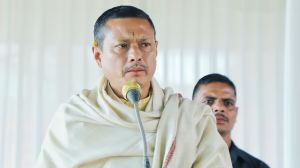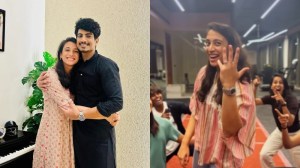Caught napping — MSU struggles with a weak’ image
VADODARA, July 25: It was sometime in May that students' union leaders WENT on the rampage, hurling abuses and forcing M S University Vic...

VADODARA, July 25:
Action taken: The involved students were given a warning.
Action taken: A police case was registered; two or three students were detained.
Action taken: They were warned and told if they repeated the episode, they’d be handed over to the police.
The action taken against the leaders of the rampage? They were barred from admitting themselves into MSU for a year.
It’s almost as predictable as a trite Hindi film. So-called student leaders will disturb peace and teaching in the campus, will break some furniture and a couple of window-panes. The authorities will say enough is enough and threaten stern action. And, in the end, will let them off with a warning.
Until the next time round.
The university authorities’ inexplicable inability to deal with trouble-makers firmly is worrying senior professors and academics. “If they keep giving in and ask for police protection at the drop of a hat, students will soon begin to take the authorities for granted, knowing that the everything will be decided by the police”, says a professor of the Science faculty. “Sometime ago, a particular group of students abused a lady clerk. They were just asked to submit a written apology and everything was forgotten. Such incidents only encourage trouble-makers”, he adds.
Scoffing at the quality of leadership’ in evidence today, former Law faculty dean J C Rathod says, “We didn’t go to the extent of pelting stones at buildings and breaking window-panes. Demands can be highlighted through representation and argument.”
According to Rathod, the rampages and bursts of violence were all engineered with an eye to wooing freshers. “If one comes across a name regularly in the newspapers, one tends to form an idea about the person even without meeting him or her”, he says obliquely. Social Work faculty dean Anil Navle — an active union leader in his student days — agrees that the concept of leadership has changed tremendously in these intervening years. “We could never think of bad-mouthing a woman clerk or any member of the opposite sex”, he says. “Leadership, in our book, meant respect for everyone. We didn’t need to shout anyone down.” “If we don’t raise our voices nobody would listen to us”, retorts student union general secretary P Verma. “No one pays attention to memoranda and similar peaceful steps”.
Senior Arts faculty professor H C Shukl, however, has a word in defence of the students. “They often end up playing into the hands of vested interests, which include teachers”, he says. “There have been cases when students have become involved in problems that related basically to teachers. Instead of being sorted out at the teacher-level, they blew up.”
Surprisingly, union president S R Pandya believes the hooliganism could be — and should be — controlled “only if the authorities were a bit more stern and stuck to their words. All too often, instead of being dealt with sternly, students are let off with a stern warning”. If Pandya is all for more strictness, V-C Anil Kane seems to be more indulgent. “They’ll obviously become violent if you don’t hear them out before taking a decision”, he says. “But if they are at fault, we can go to the extent of denying them admission, like we have done with four students recently.” True. The decisive step surprised most varsity-watchers. Now they wonder: How will the university cope with the close-down threat?



- 01
- 02
- 03
- 04
- 05




























